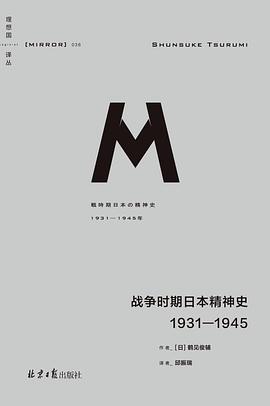WULOLIFE
《战争时期日本精神史》作者: [日] 鹤见俊辅 出版社: 北京日报出版社
《战争时期日本精神史》作者: [日] 鹤见俊辅 出版社: 北京日报出版社
Sale
Sold out
Regular price
€22,00 EUR
Regular price
Sale price
€22,00 EUR
Unit price
per
Tax included.
Shipping calculated at checkout.
Couldn't load pickup availability
Description
内容简介 · · · · · ·
自1931年“九一八事变”到1945年二战结束,日本以“国体”之名,让包含殖民地在内的全日本帝国笼罩在强烈的国家意识形态支配下,对战争、天皇、国家极端狂热,进而深化其大亚细亚主义与玉碎思想。通过考察日本人的锁国性格与自卑感、知识分子的思想历程、国家的强制力,以及国家与人民的关系,鹤见俊辅精辟地剖析日本如何从一个在明治时期走向富强,精神思想自由、开放的国家,转变为保守、狭隘,法西斯主义横行的侵略国。他进而解释日本知识分子对国家主义的挣扎、反省、抵抗为何会失败,又如何在受到压迫后屈服“转向”,成为军国主义的“共犯”,最终在国家发动战争时,宣传并正当化军国主义和超国家主义,致使日本走向玉碎之路。
作者简介 · · · · · ·
鹤见俊辅(1922—2015),日本思想家、文化评论家、社会运动者。曾任教于京都大学、东京工业大学、同志社大学。与丸山真男、都留重人等人组成“思想的科学研究会” ,为战后日本最负盛名的思想杂志。强调“思想·良心的自由”,积极参与反对越战、推动慰安妇赔偿等运动。着有《战后日本大众文化史》《战争留下了什么》《漫画的战后思想》等。1994年因其对现代思想荣获“朝日奖”。
